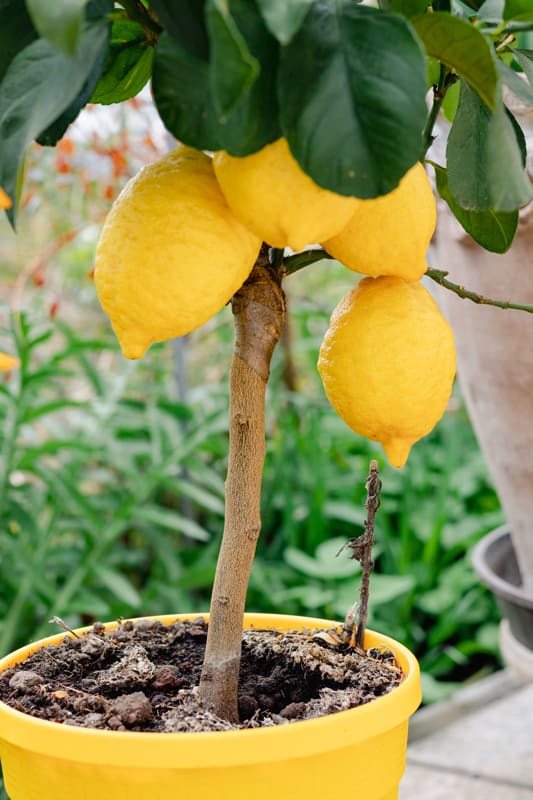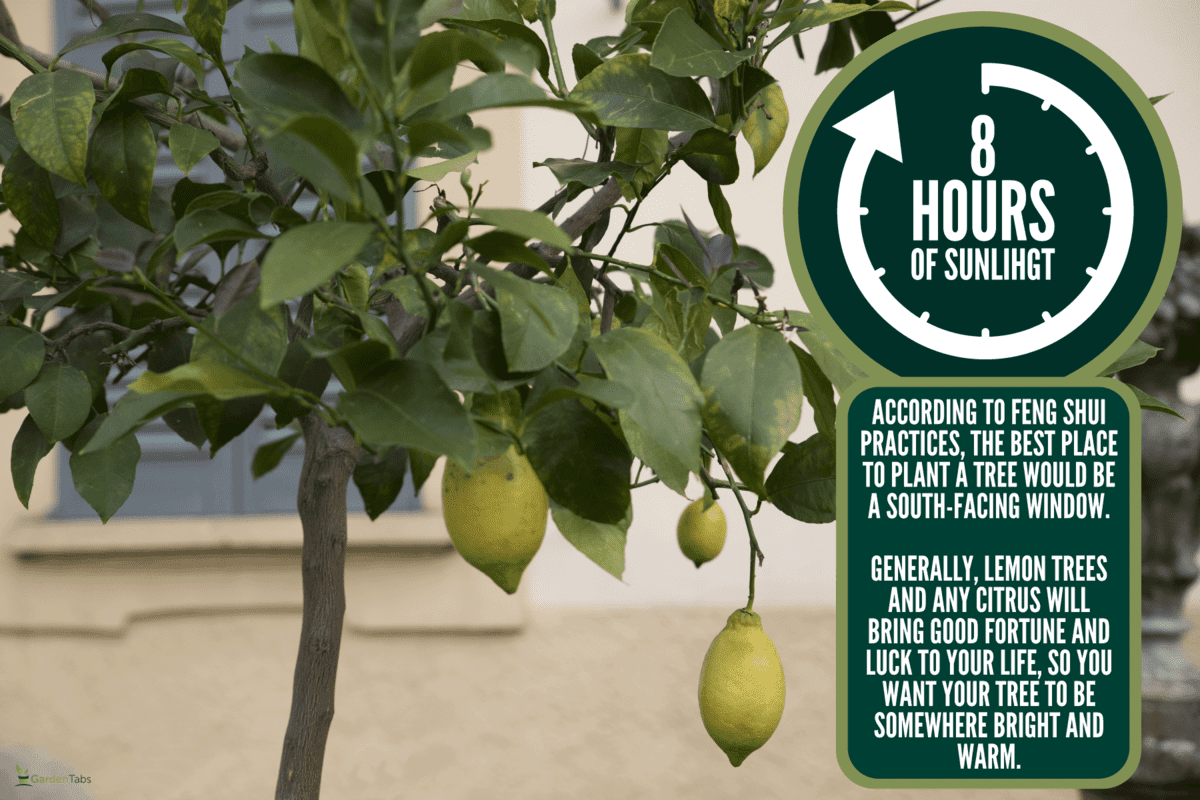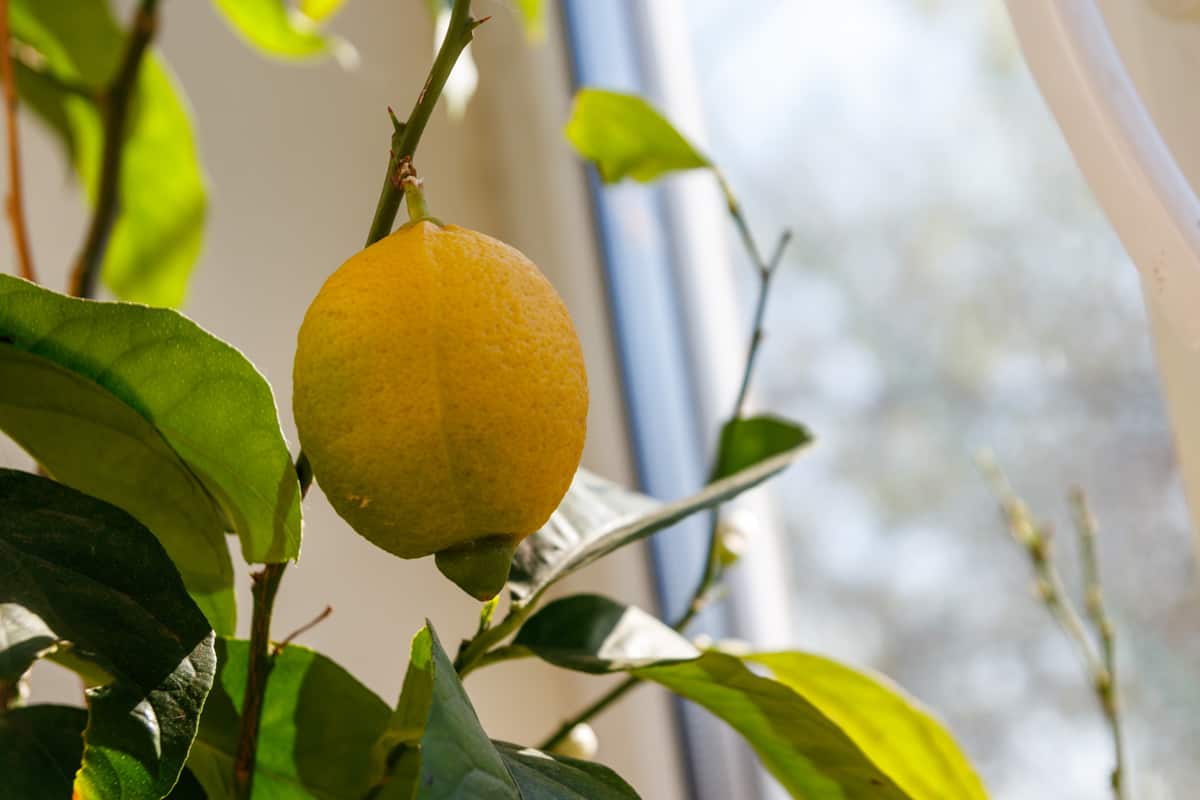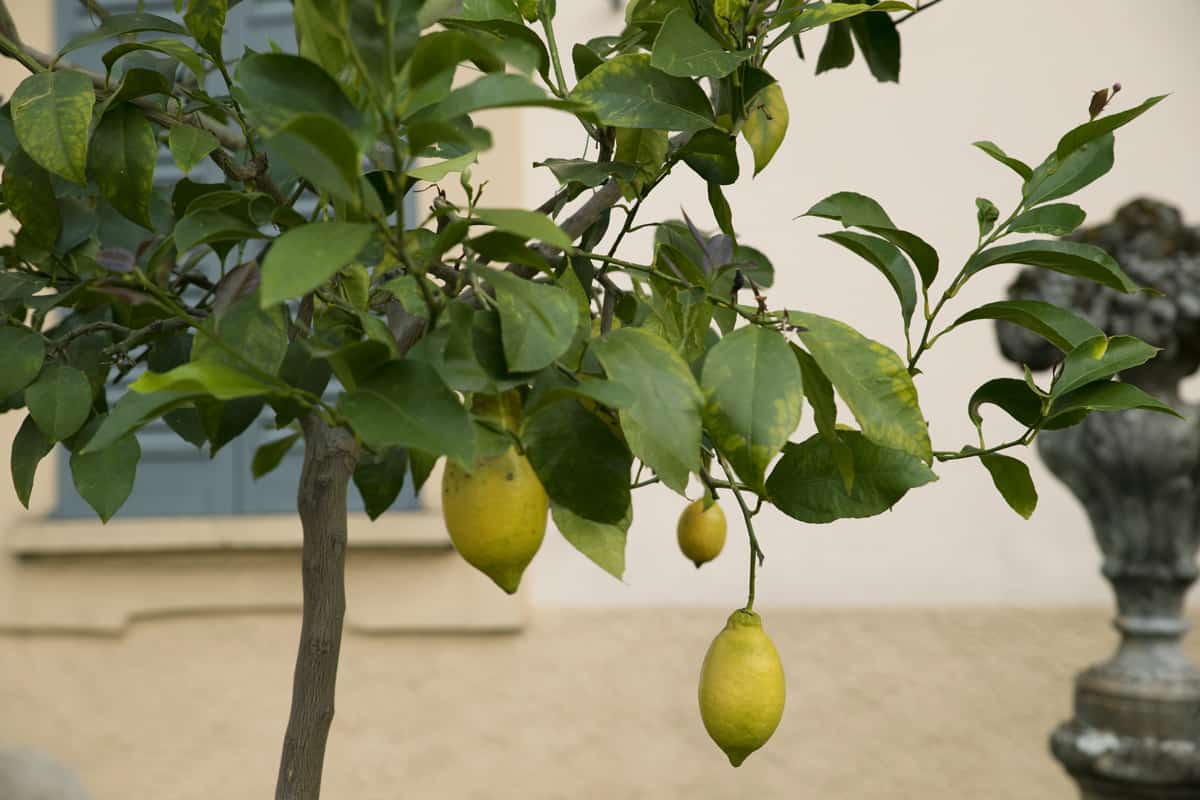Figuring out the best way to place a tree in your home or garden can feel impossible without the right information. Do you have a lemon tree you want to grow but don't know where to put it according to Feng Shui teachings? Are lemon trees good for Feng Shui?
We answer these questions and many others throughout this article.
According to Feng Shui practices, the best place to plant a tree would be a south-facing window. Generally, lemon trees and any citrus will bring good fortune and luck to your life, so you want your tree to be somewhere bright and warm.
Furthermore, if your house faces the southeast, you have more freedom as to where your lemon tree can go. Just remember to provide it with light, as this encourages growth and good energy/spirits.
As we start this post, we will discuss all things lemon trees and cover where to grow them according to Feng Shui. Whether you're trying Feng Shui out for the first time, already have your home aligned with a proper chi, or have questions about lemon tree maintenance, you're at the right place. Let's dive in!

Where Should A Lemon Tree Go According To Feng Shui?
A south-facing window is the best place to grow a lemon tree in your house for Feng Shui. Generally, a southern-facing window will be bright and warm, which is ideal for citrus trees.
In addition, Feng Shui states how lemon trees can bring good fortune and opportunities to your life, but these things can't happen if your tree is unhealthy.

Citrus trees, lemon or not, should be in the 'wealth corner' of a home. Typically, this is the farthest left-hand corner you can see from your bedroom door.
An easy way to activate this wealth corner is by placing purple objects, live green plants, and a small flowing water fountain in the corner.
Not only will a lemon tree fulfill this area, but it will also produce fresh fruit for you to cook with. Think of your tree as a magnet for positive energy and good luck.
Is Having A Lemon Tree Good For Feng Shui?
Yes! Having a lemon tree in your home is very good for creating proper Feng Shui. Generally, southeast-facing lemon and citrus trees will bring wealth and opportunities to you and your family/roommates.
Growing a lemon tree inside your house can be a great project for you and your space's chi, so we recommend trying it out.
Citrus, in general, are considered lucky, so the more you surround yourself with, the better luck you should have in Feng Shui. Again, you don't need 20 lemon trees in the left corner to get that new job or opportunity, but carefully positioning one is essential.

An interesting Chinese tradition is to give people you love a citrus tree during the Chinese Spring Festival, which promotes better luck and health in their lives.
So, if you need a birthday or holiday gift idea, you may want to purchase a small citrus tree to give to a friend or family.
Happy Birthday Meyer Lemon Gift Tree
This live lemon tree is perfect for special occasions, is a fruit-bearing dwarf variety, comes in a decorative pot, has a USDA recommendation of zones 9-10, and weighs roughly 12 pounds.
Follow this link to view it on Amazon.
How Much Light Does A Lemon Tree Need?

It's usually best to plant a lemon tree somewhere with at least eight hours of sun daily. Of course, if your tree gets closer to six hours of warm, bright sunlight, that shouldn't negatively affect it.
Like any citrus plant, a lemon tree loves the sun. Therefore, it's a good idea to have yours in a south-facing window where it can flourish and follow the Feng Shui teachings.
According to Pennington, you can expect a lemon tree with full sun to produce better, bigger fruit than one with low light. So, moving your tree somewhere extra bright is a good idea if you want juicy lemons.
In addition, you don't want a lemon tree getting less than six hours of sun each day. Not only can less light affect your plant's health, but it can also affect its energy.
One of the worst things you can do for Feng Shui energy is to have a dying or dead plant in the home. Keep this in mind, and care for your lemon tree as best as possible.
Do Lemon Trees Prefer Morning Or Afternoon Sun?

For those wanting to know about the specific light preferences of a lemon tree, this can depend on how warm it is outside. For example, lemon trees in warmer climates prefer full sun through the morning and partial shade through the hotter afternoon hours.
In contrast, lemon trees in colder climates need bright, full sun all day long: morning and afternoon.
The key here is to give your tree enough light and warmth to grow. Typically, a healthy lemon tree will have more sun than shade, as it needs to absorb its rays for energy.
So, if your window is south-facing, you won't likely run into light problems. Instead, you may even need to move your tree a bit during the summer to prevent burning.
All light isn't hot, so that's another thing to remember.
Do Lemon Trees Do Well Indoors?
Yes, lemon trees do typically grow well indoors. As long as your house stays at least 65 degrees through the evening hours, your lemon tree will grow properly.
One thing to be mindful of is the drafts in your home. For example, a lemon tree won't respond well to a hot or cold breeze inside or outdoors, so avoid placing it near a heater or AC unit/vent.
The key to growing and keeping a lemon tree healthy is moderate conditions. Therefore, having one right next to the air or heat can upset it and cause it to die.

You also want to ensure your tree gets enough daily sunlight.
A common problem for indoor plants is a lack of sun exposure, so the brighter the window, the better. Although a lemon tree might be okay outside in the shade, the one in your living room needs more consistent light and warmth to stay alive.
How Big Will An Indoor Lemon Tree Get?
Depending on your lemon tree and interior conditions, an indoor lemon tree can reach six feet or more. Again, this all comes down to the variety and space your tree has, so you could only see yours become 3-4 feet tall.
Generally, indoor trees stay more petite than their outdoor counterparts. That's because their pots can only sustain a finite root system, so sprawling isn't expected.
In addition, for Feng Shui, many people prefer to turn their lemon tree into a bonsai, which makes more sense for bringing luck and good fortune to the home.
There's not one way to do this, so everyone will be a little different.
If you don't want a massive lemon tree, we recommend bonsai or routine pruning, and if you do want a bigger tree: don't be afraid to let yours go wild.
How Does Feng Shui Work?

Feng Shui is the art of positioning buildings, objects, space, and life to achieve harmony and balance. Through correct positioning and spacing, Feng Shui claims to change people's lives: often bringing prosperity, peace, love, and health.
By creating harmony in your home, you can change your mindset. For example, a super unorganized home without proper Feng Shui may cause your mind to work the same way.
In contrast, clean, well-positioned space with a wealth corner will encourage positive energy and behaviors for everyone living there.
Another primary purpose of Feng Shui is "unblocking" the way for good energy to come into your life. Windows and doors are also essential for this practice, so keep them clean and clutter-free.
Live plants are also a great way to brighten up your space's vibe, all while cleaning the air of toxins and negative spirits/energy. Lemon trees work well for this and are great for those wanting financial progress and freedom.
Is Feng Shui Effective?
Although opinions and studies vary, Feng Shui can bring meaningful change to your life. This ancient Chinese way of living is a great way to organize your home, energy, and mind while following a practice made thousands of years ago.
Of course, there is no scientific evidence of Feng Shui affecting your life: positively or negatively. Therefore, you take the risk of not knowing whether this truly works or not.
When you stop and think, though, this can be said about many things we believe and practice. So, although Feng Shui isn't technically a proven way to improve your life, it is a great idea for organizing your home and everyday behaviors.
Especially for people who garden indoors, having a lemon tree or other plant for Feng Shui is getting to do two fun things for the price of one.
To Finish It All Up

Whether you want to start practicing Feng Shui, haven't heard of it yet, or want to grow a lemon tree inside, these things can all become one. We found that the best place for a lemon tree in a home, according to Feng Shui, is a south-facing window.
In addition, you want to create a wealth corner in the far left corner from your bedroom door with your tree. Placing it there can bring good luck and financial opportunities your way.
Although Feng Shui isn't scientifically proven, it is an ancient, trusted process by millions of people. You don't always have to see something to believe it!
Made it to the end? Check out these related posts below:
Where To Place An Aloe Vera Plant In Feng Shui?

